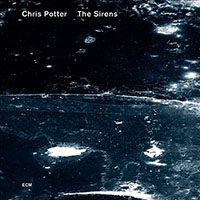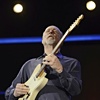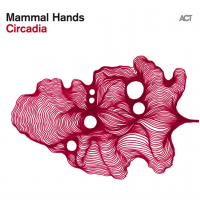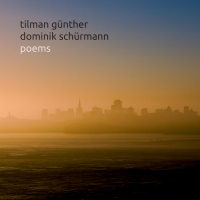Home » Jazz Articles » Album Review » Chris Potter: The Sirens
Chris Potter: The Sirens
Familiarity with Homer isn't necessary to appreciate Potter's compositions. These mood poems, like the episodes that inspired them, contain an endlessly engaging lyrical narrative, and emotional poignancy that speaks to the universal soul. Pianist Craig Taborn renews an acquaintanceship with Potter that goes back on record to Underground (Sunnyside Records, 2006) and the two are in sizzling form, notably on the stunning "Wine Dark Sea." The unfolding rhythms and accents of bassist Larry Grenadier and drummer Eric Harland inform the music deeply, as does pianist David Virelles, though more subtly.
A leader in his own right, Virelles has also worked with saxophonists Steve Coleman, Ravi Coltrane and Jane Bunnett and his sparingly used prepared piano, harmonium and the glockenspiel-like celeste bring another dimension to the music. On the drama-laden "Wayfinder," Virelles on prepared piano engages with Taborn in a tense dialog characterized by dissonance and abstract percussive accents, urged on by Harland's bustle. Virelles' celeste brings a music-box delicacy to the atmospheric slower number "Nausikaa"—with Potter on soprano—and still-life impressionism to the miniature sound sculpture "The Shades."
Gentle melodic contours map the dream-like flow of "Dawn (With Her Rosy Fingers)." Lyrical tenor flights bookend a minimalist piano solo and whispering bass and brushes on this least predictable of ballads. More stripped down still is the title track; Potter's bass clarinet and Grenadier's arco carve out mournfully lyrical lines of a slightly Balkan hue, with Taborn providing delicate counterpoint, and Virelles, on harmonium, slipping in quasi-subliminal touches. With Potter's switch to tenor a forceful quintet passage ensues. "Penelope" is a lithe soprano feature, with Potter's sinewy blues contrasting strikingly with the understated accompaniment.
"Kalypso"—the most conventional track—is stylistically a little at odds with the rest of the album, though there's no escaping the spirit of freedom in the bop-inspired improvisations. "Stranger at the Gates" smolders with quiet intensity, and although Taborn and Potter grab the spotlight, Harland's sympathetic and inventive stick work is compelling.
Homer wrote: "Each man delights in the work that suits him best"—a truism that resonates throughout this inspired and inspiring music. The Sirens will go down as one of Potter's best, but this is assuredly a collective triumph.
Track Listing
Wine Dark Sea; Wayfinder; Dawn (With Her Rosy Fingers); The Sirens; Penelope; Kalypso; Nausikaa; Stranger at the Gate; The Shades.
Personnel
Chris Potter
saxophone, tenorChris Potter: soprano and tenor saxophones, bass clarinet; Craig Taborn: piano; David Virelles: prepared piano, celeste, harmonium; Larry Grenadier: double bass; Eric Harland: drums.
Album information
Title: The Sirens | Year Released: 2013 | Record Label: ECM Records
Tags
PREVIOUS / NEXT
Chris Potter Concerts
Support All About Jazz
 All About Jazz has been a pillar of jazz since 1995, championing it as an art form and, more importantly, supporting the musicians who make it. Our enduring commitment has made "AAJ" one of the most culturally important websites of its kind, read by hundreds of thousands of fans, musicians and industry figures every month.
All About Jazz has been a pillar of jazz since 1995, championing it as an art form and, more importantly, supporting the musicians who make it. Our enduring commitment has made "AAJ" one of the most culturally important websites of its kind, read by hundreds of thousands of fans, musicians and industry figures every month.






















